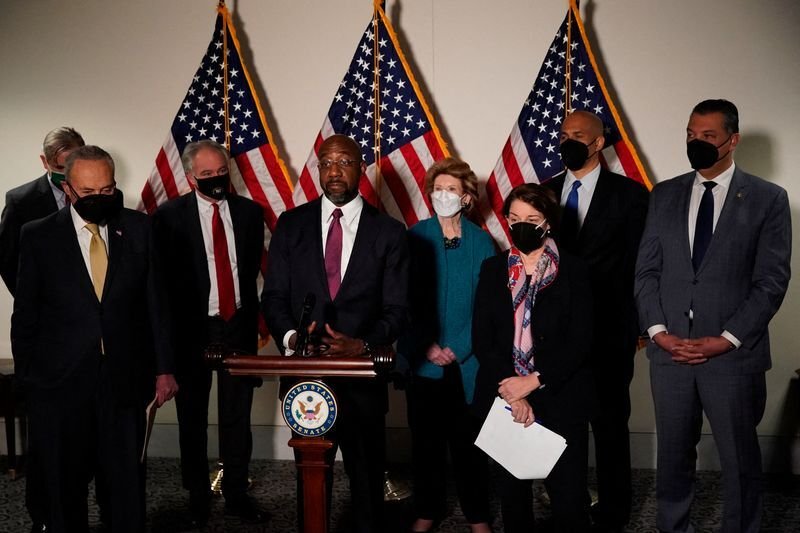
US Senate Democrats Fail In Bid to Pass Voting Rights Bill
Democrats came up short Wednesday night on a last-ditch effort to advance a voting rights bill and ending, for now, their push to beat back a myriad of GOP-sponsored state laws that civil rights advocates say would suppress turnout by minority voters.
The vote earlier Wednesday night to end debate on the bill was shot down, 51-49, with every Republican voting against moving the bill to the Senate floor for a final vote. Democrats needed 60 votes to overcome a legislative procedure known as the filibuster. Senate Majority Leader Chuck Schumer, D-N.Y., changed his vote to “nay” at the end so he can bring the legislation up again at a later date if he wishes.
Hours later, a separate vote to change the filibuster rules for the voting rights bill so it could pass with a simple majority of 51 votes also failed.
In a statement shortly after the failed vote to change the filibuster, President Joe Biden said: “I am profoundly disappointed that the United States Senate has failed to stand up for our democracy. I am disappointed — but I am not deterred.
“My Administration will never stop fighting to ensure that the heart and soul of our democracy — the right to vote — is protected at all costs. We will continue to work with allies to advance necessary legislation to protect the right to vote. And to push for Senate procedural changes that will protect the fundamental right to vote.”
The success of a voting rights bill seemed a long shot for months in the evenly divided chamber. Republicans have stood in opposition all year, but its fate was ultimately sealed last week as Democrats were unable to convince Democratic Sens. Kyrsten Sinema and Joe Manchin to go along with a plan to change the Senate rules and allow a vote on the measure.
The bill combined the John Lewis Voting Rights Advancement Act and the Freedom to Vote Act.
Democrats put renewed focus on voting rights: What happened in 2021, and where do proposals stand now?
The John Lewis Voting Rights Advancement Act, named for the late Georgia Democratic representative and civil rights icon, would restore the Justice Department review of changes in election law in states with a history of discrimination.
The Freedom to Vote Act would create a federal standard for voting by mail and drop boxes – means of voting that former President Donald Trump and some Republican lawmakers attacked during the 2020 election. The legislation would also expand early voting options and access to mail-in ballots; curb large, anonymous political contributions known as dark money; and allow for same-day voter registration on Election Day.
“The purpose of the Freedom to Vote Act is to give every eligible American more choice about how and when to cast a ballot, no matter where you live, no matter which state or in which zip code, no matter your political party preference,” Sen. Alex Padilla, D-Calif., said on the Senate floor Wednesday.
Voting rights and election reform: Senate Republicans block the latest legislation
However, to pass the legislation, 10 Senate Republicans would have needed to join all 50 Democratic voting senators to bypass the filibuster.
Republicans have consistently argued elections should be left up to the states and that federal legislation would violate the Constitution and unfairly tilt elections toward Democrats.
A recent analysis reveals the six states where it is hardest to vote due to restrictions on absentee and early voting.
Sen. John Cornyn, R-Texas, called it a “partisan bill to take over the nation’s elections,” during the Senate floor debate.
Blocked from bringing the bill to the floor for a vote on passage, Democratic leaders then put forth a vote to change the filibusterto advance the bill. Most Democratic senators and President Joe Biden threw their support behind the rule change.

